The biggest gaming controversies of 2022
Injuries, leaks, crime, NFTs, and a giant goddamn dragon: 2022 was a pretty big year for big moments.

- Artesian Builds goes bust
- TitanReach disappears
- Square Enix CEO embraces NFTs
- Dr Disrespect settles with Twitch
- Everquest guild wakes the dragon
- Military secrets get posted to War Thunder forums
- PC game collecting community rocked by forgery scandal
- Grand Theft Auto 6 leaks
- CD Projekt shuts down real-life Witcher school
- Ready or Not removed from Steam
- Twitch streamer seriously injured at TwitchCon
- NFT bro torches valuable painting
- Domina delisted from Steam
- Final Fantasy 16 director rejects diversity
Another year past, and another batch of gaming outrage and upset behind us.
I struggle to recall the controversial moments of my early days as a gamer: The uproar over games like Doom and Mortal Kombat, maybe, or the infamously buggy release of The Elder Scrolls: Daggerfall. These days, controversial moments happen all the time, and tend to be more about business and money or bad behavior than the state of a game at launch. There's still room for small-stakes, high-impact beefs over niche interests, but the mainstreaming of gaming has changed the complexion of our controversial moments, making them—like the games themselves—more universally accessible.
Here's a look back at some of the big controversies of 2022:
Artesian Builds goes bust

What happened:
- Custom PC company Artesian Builds held a PC giveaway in March for "ambassador" streamers. Twitch streamer Kiapiaa won, but then Artesan CEO Noah Katz reneged and refused to award the prize because her audience was too small.
What were the consequences:
Artesian got absolutely (and rightfully) demolished on Twitter for the bullshit move, and when Katz eventually apologized, Kiapiaa told him to get bent. Outraged customers hit Artesian Builds with a wave of refund requests following the incident, and a month later the company was gone. The blowback over the Kiapiaa controversy clearly didn't help, but employees told PC Gamer that long-term mismanagement had left the company vulnerable to the downturn. In the wake of Artesian's collapse, former employees set about resurrecting the company as PhynixPC.
TitanReach disappears
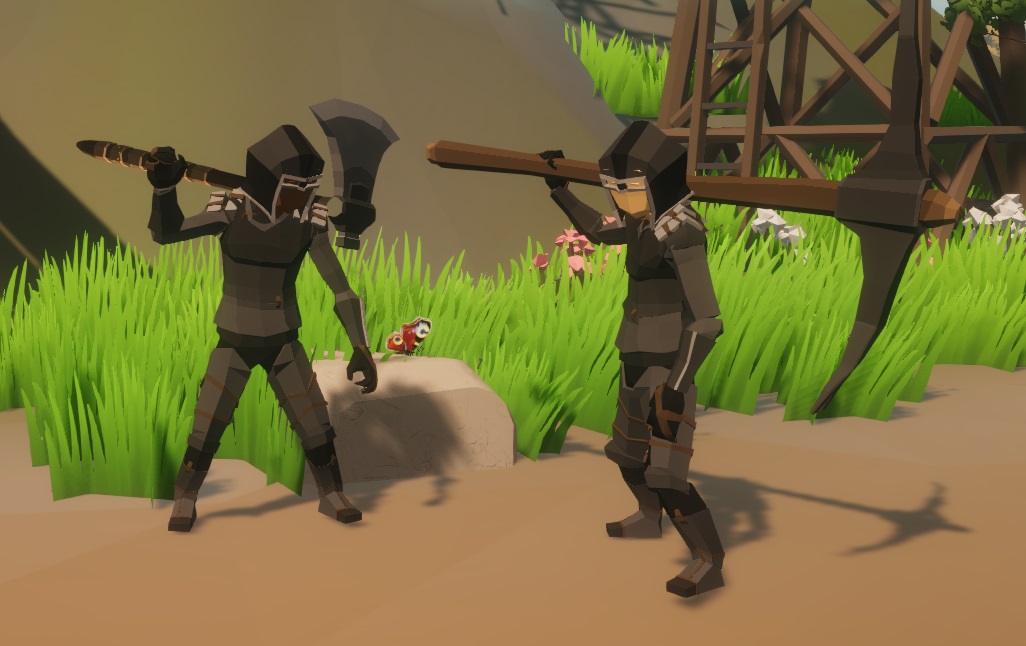
What happened:
- Indie MMO TitanReach failed on Kickstarter in 2020 but managed to raise a big chunk of change through "month-to-month" crowdfunding and anonymous angel investment.
- Despite the windfall, the developer, who goes by the name Unravel, canceled development and then disappeared amid allegations of fraud.
What were the consequences:
YouTuber KiraTV posted a video in February alleging that the angel investor pulled out of the project after learning that Unravel had misappropriated funds for a $150,000 cryptocurrency investment, which of course tanked; they also purportedly purchased a Tesla with the money, because of course it was a Tesla. KiraTV also claimed that Unravel had actually attempted to bribe him to not investigate the case. Unfortunately, that was basically the end of it: Unravel fell off the radar, and TitanReach—and the money—are gone.
Square Enix CEO embraces NFTs
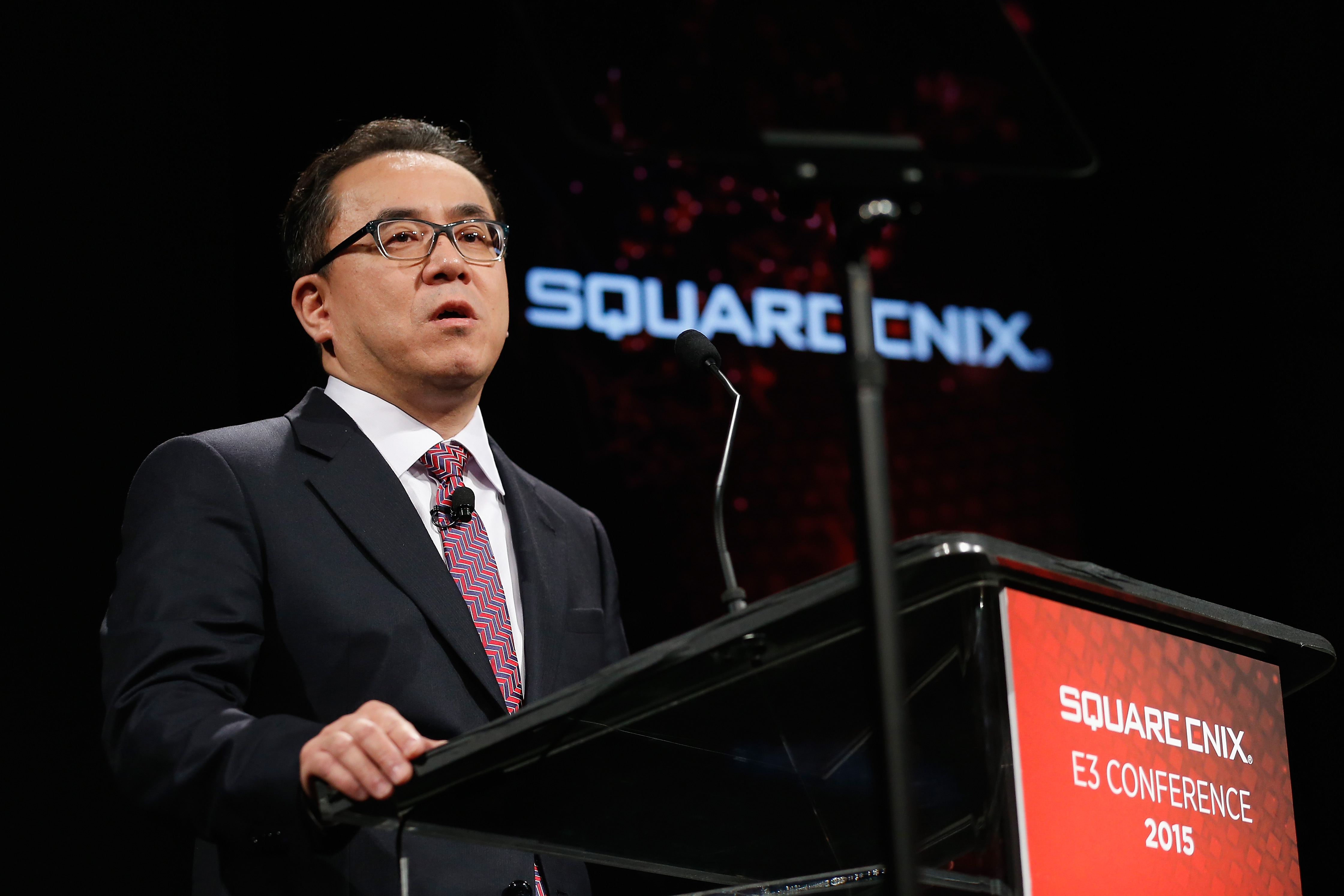
What happened:
- Square Enix CEO Yosuke Matsuda said in his new year's letter that he knows most gamers don't like NFTs, but he doesn't care.
- Other major developers and publishers are easing up on their commitment to NFTs, but Matsuda wants to go the other way
What were the consequences:
Nothing, really, except a case of "ick" and a little uneasiness about the future of Square Enix games. Matsuda acknowledged in his New Year's Letter that some people "play to have fun," but described them as "inconsistent" because they have no tangible motivation to keep coming back. Matsuda reckons that "by designing viable token economies into our games, we will enable self-sustaining game growth." In other words, paying people to generate game content but without assuming the responsibilities or oversight that comes from actually hiring people as employees.
We may not like it, but Matsuda clearly does: He said Square Enix "will keep a close eye on societal shifts in this space while listening to the many groups of users that populate it, and ramp up our efforts to develop a business accordingly."
Keep up to date with the most important stories and the best deals, as picked by the PC Gamer team.
Dr Disrespect settles with Twitch
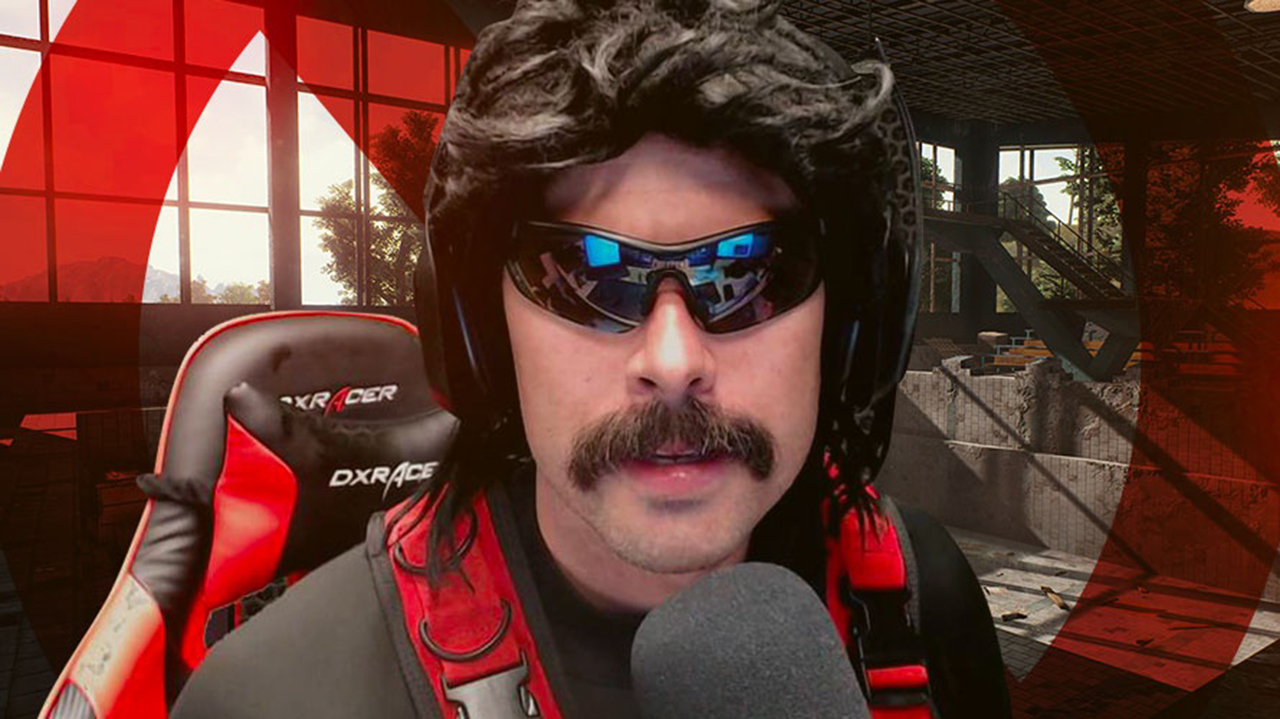
What happened:
- Two years after he was permanently banned from Twitch, popular livestreamer Dr Disrespect announced that he'd settled his legal dispute with the platform.
What were the consequences:
The two-sentence settlement announcement was a stunning anti-climax to one of the biggest Twitch controversies ever. It was also controversial in itself because we still have no idea why he was booted from Twitch in the first place.
Whatever the cause, Dr Disrespect himself has carried on more or less uninterrupted, at least as far as his public persona goes: He continues to stream on YouTube, but most of his attention these days is focused on Deadrop, the multiplayer FPS in development at Midnight Society, the studio he launched in 2021 with Robert Bowling and Quinn DelHoyo.
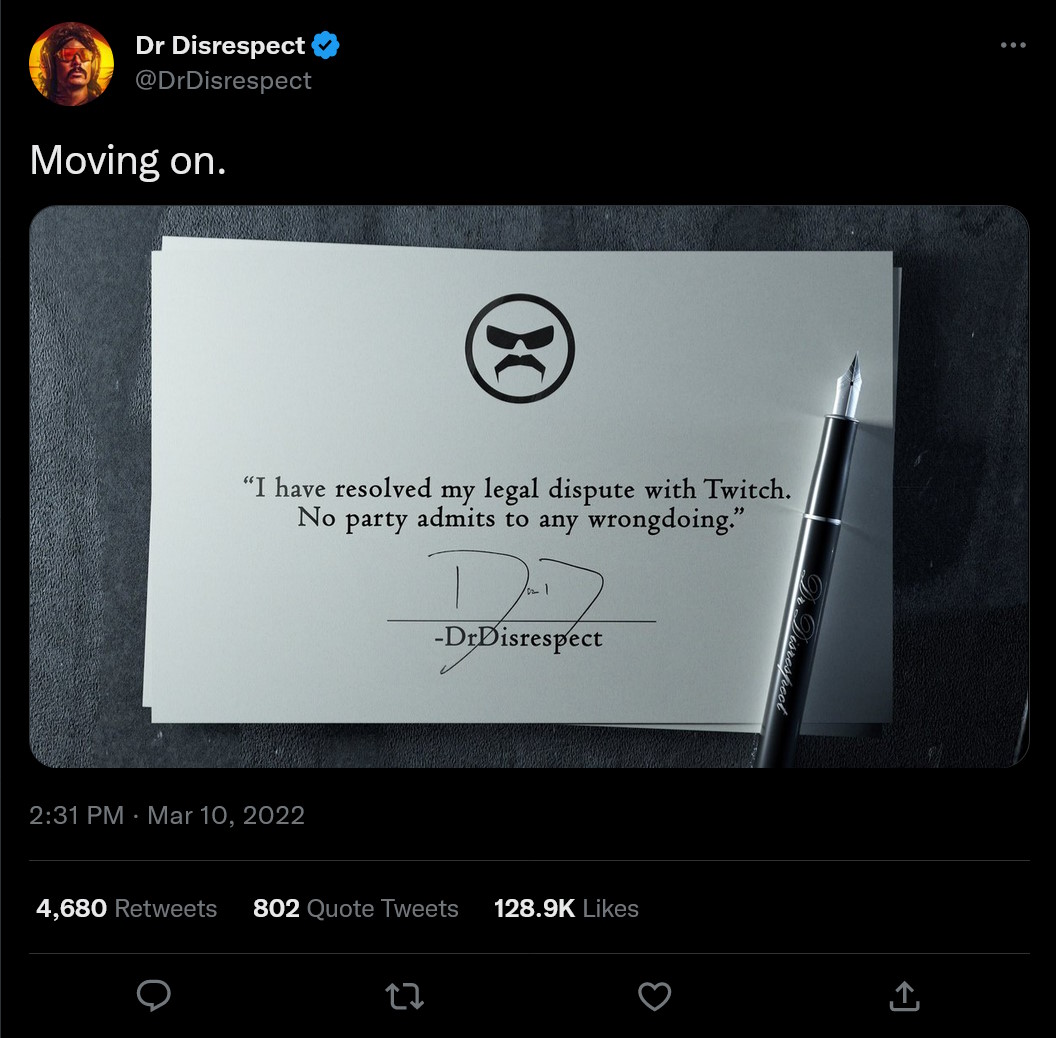
Everquest guild wakes the dragon

What happened:
- A guild on Everquest fan server Project 1999 Green awoke a legendary dragon.
- People got mad.
What were the consequences:
The dragon Kerafyrm is a relic of an MMO era long past, in that his presence changes the game in significant, permanent ways. It happened long ago in "real" Everquest, but the Project 1999 Green fan server maintains the game as it was back in the day, with just two expansions, no microtransactions, auction house, or instances, and a slumbering Kerafyrm. The decision to awaken him, made by some (but not all) members of the guild Seal Team, was significant not just because of the rampage of death and destruction he unleashed across the land, but because it permanently removed the Warders that were keeping him trapped—and, more importantly, the fantastic loot they'd drop.
There was something of a gentlemen's agreement in place that kept things in stasis previously—players could kill and loot the Warders at will, but Kerafym himself was off limits—but after an internal power struggle almost led to the release of the dragon, guild leadership decided that someone was going to wake the dragon, so it might as well be them.
As you might imagine, an awful lot of players were not happy to see the game irrevocably changed. Hundreds of them took up Seal Team's invitation to join the final battle against Kerafyrm at Skyshrine, home of Kerafyrm's foe Lord Yelinak, but in what I can only assume was a fit of righteous sour grapes, they killed Yelinak instead. Then Kerafyrm murdered everyone and disappeared forever.
People were really mad.
Military secrets get posted to War Thunder forums
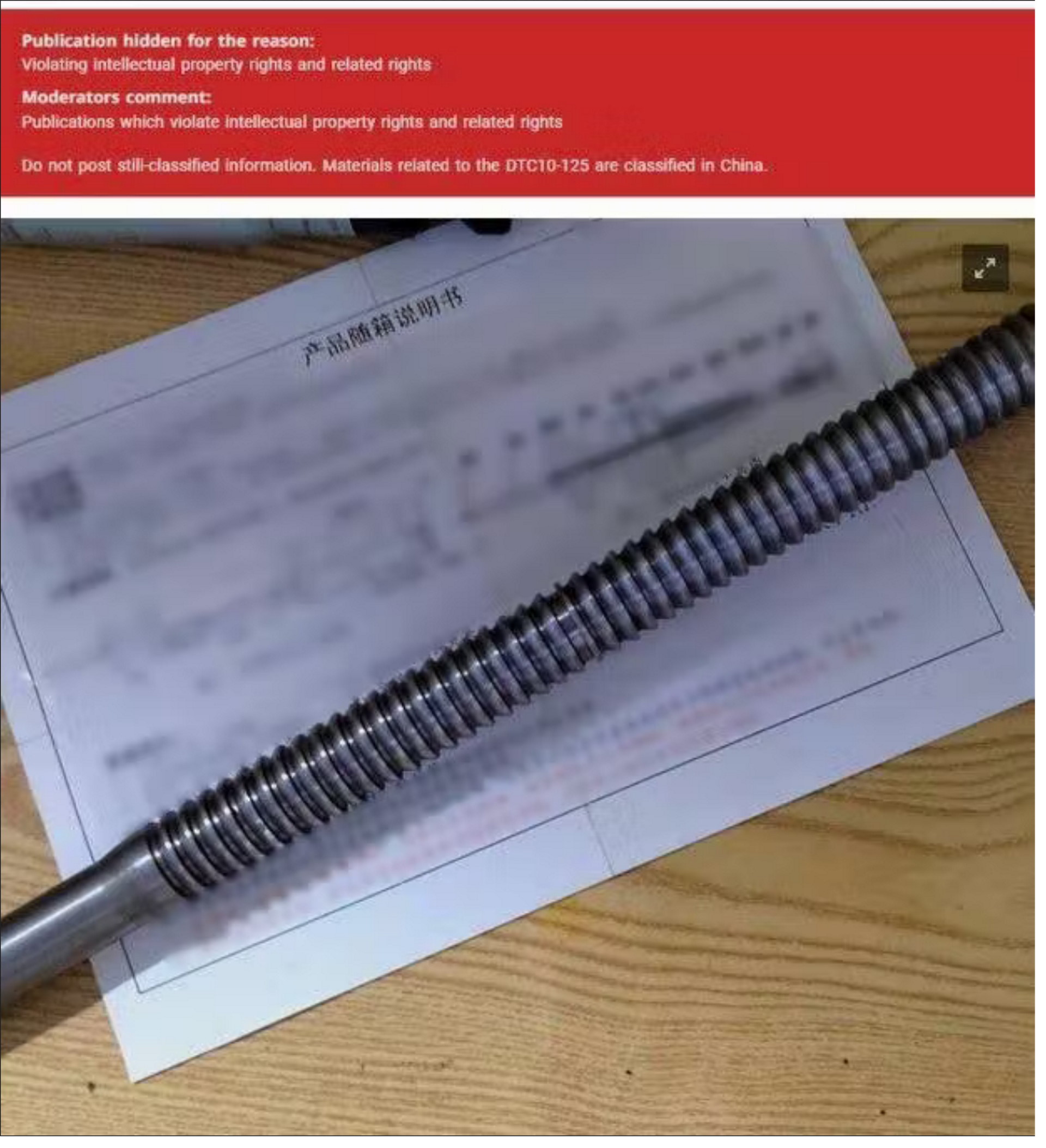
What happened:
- Detailed specs on one of China's primary anti-tank rounds was shared on the War Thunder forums.
- This is at least the third time someone has committed literal treason in War Thunder.
What were the consequences:
Leaking classified military intel on the War Thunder forums is almost trendy at this point. In fact, a leak of info on the UK's Challenger 2 tank on the War Thunder forums made our 2021 list of the year's biggest gaming controversies. Believe it or not, there were actually two leaks in 2021: In October, someone else dropped secret details on France's Leclerc MBT.
It happens because players, many of whom are current or former military personnel themselves, take issue with developer Gaijin Entertainment's portrayal of real-world hardware in the game. The problem, of course, is that this information is all classified, which is why developers sometimes have to wing it a bit.
In 2022, it wasn't tank intel that leaked, but inside information on a tank killer: China's DTC10-125 anti-tank round. Ironically, in this case the whole "treason" thing probably wasn't even necessary (insofar as any of this is necessary) because the stats on the ammo were apparently just placeholders, copied over from a preview development server.
Gaijin quickly took down the post, and remind its users—because this is the sort of thing that War Thunder forum mods have to do—to please not post classified intelligence, not just because it's a pretty big crime, but because they can't use the info in the game anyway since, you know, possessing and sharing it is a pretty big crime. I've said it before, and I expect that eventually I'll say it again: Treason is an incredibly serious crime in any country, but it's also a pretty funny one when you do it on the War Thunder forums.
PC game collecting community rocked by forgery scandal
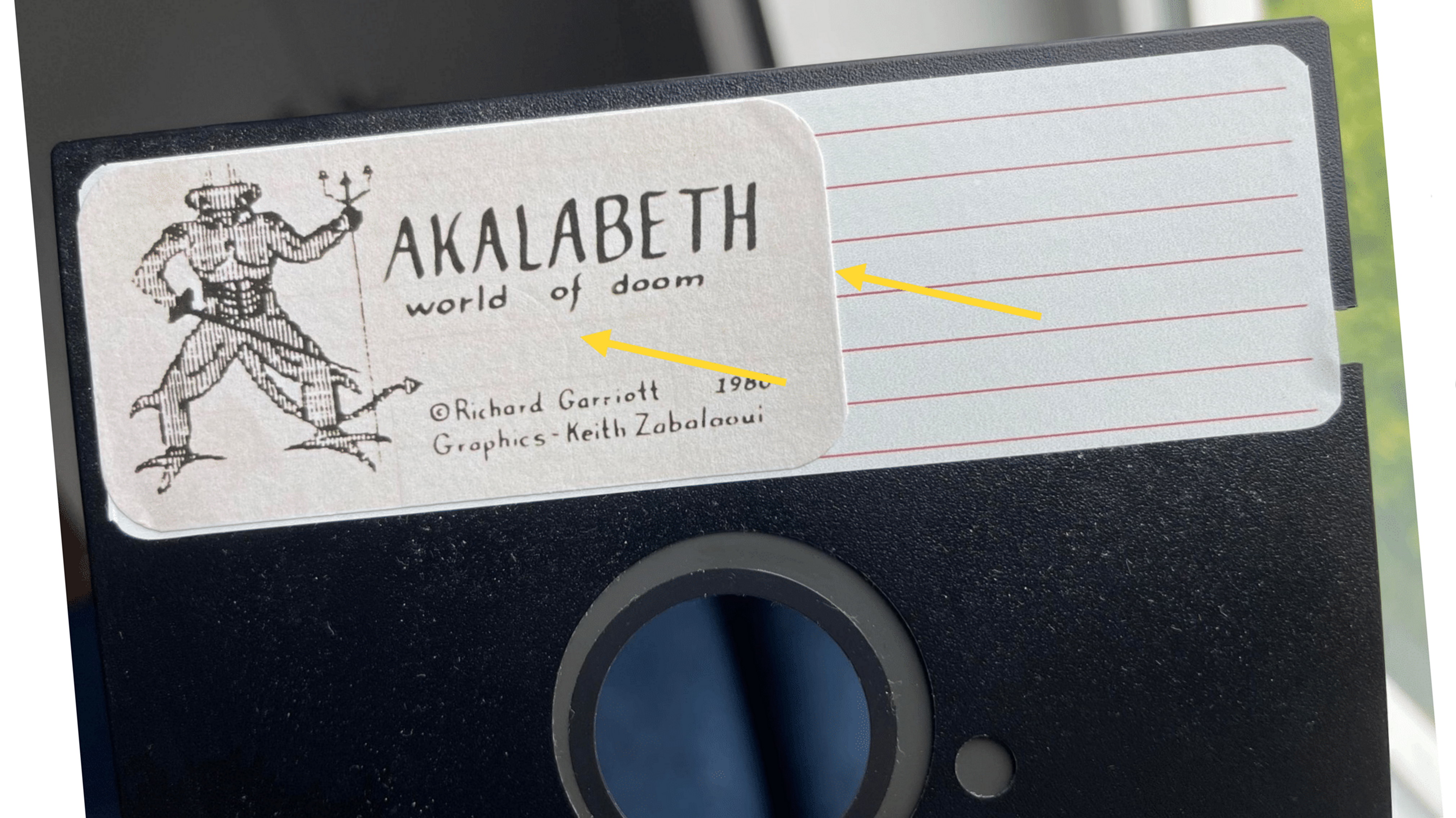
What happened:
- One of the biggest PC game collector groups discovered that one of its foremost members was selling counterfeit copies of high-end games.
What were the consequences:
The discovery that well-known collector and former Big Box PC Games Group moderator Enrico Ricciardi had been selling forged copies of rare, expensive games really shook up the relatively small, insular collecting community. Ricciardi denied any wrongdoing, while an in-depth examination of the evidence led the group to believe that he likely knew what he was doing. The group also claimed that others were conducting their own separate investigations into similar claims against Ricciardi.
The amount of money involved was significant: Among the games sold to unwitting collectors were multiple copies of Akalabeth: World of Doom, Richard Garriott's first game, which Garriott had offered as a reward in the 2013 Kickstarter campaign for Garriott's Shroud of the Avatar—at the $10,000 tier. Total losses were pegged at a minimum €100,000 ($107,000), which was expected to rise as investigations continued.
But it wasn't just the money lost that was the problem. The PC game collecting community relies heavily on trust to function, and that can be difficult to maintain in the wake of a willful deception on this scale, allegedly perpetrated by a respected member of the community. The Big Box Game Collectors Group shared a doc on how to avoid being scammed, and invited traders who think they've been ripped off to reach out for help.
Grand Theft Auto 6 leaks
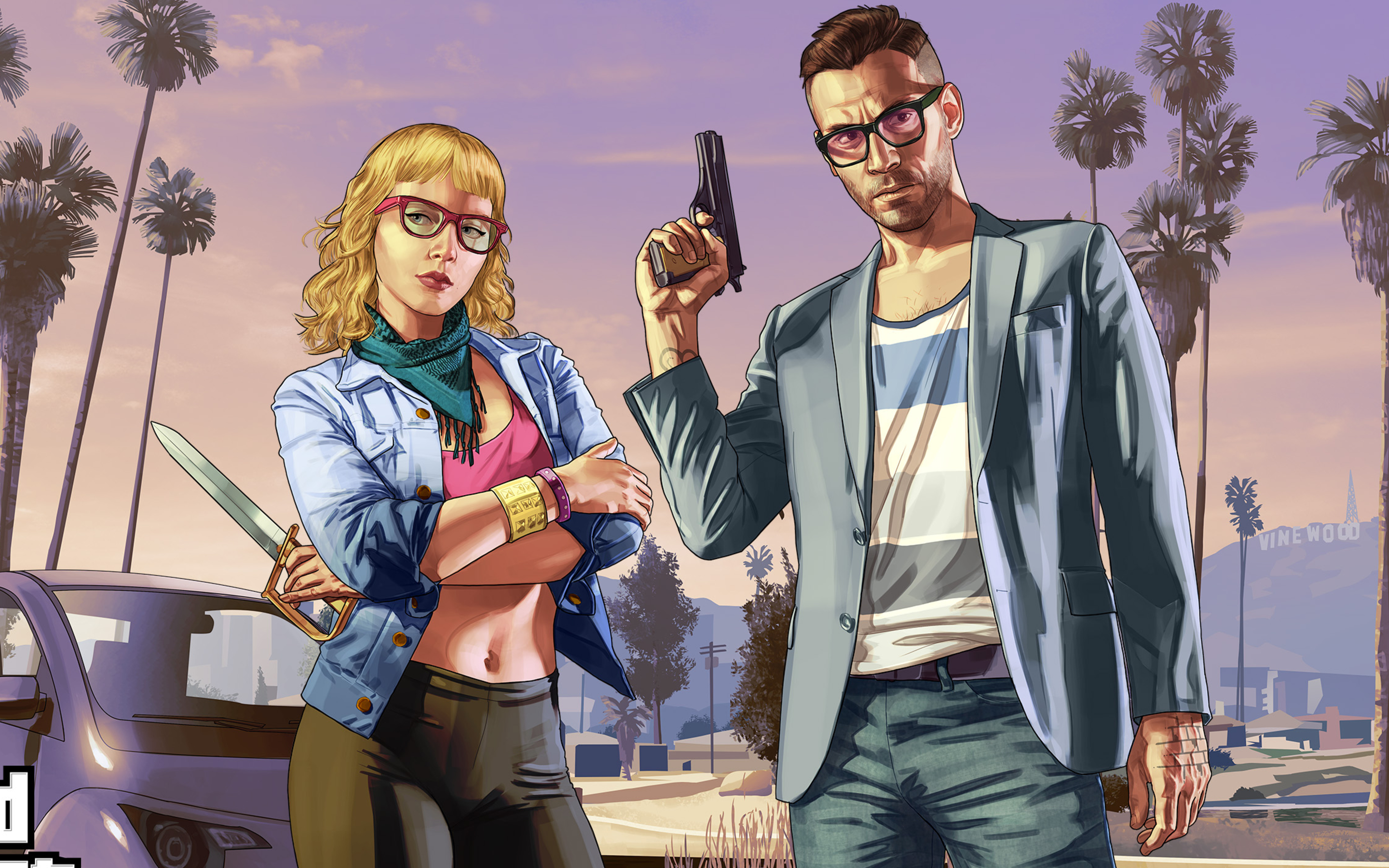
What happened:
- A huge Grand Theft Auto 6 leak of screens and video clips
- The leaked content pointed toward an open-world game with two protagonists, a man and a woman, in the fictional metropolis of Vice City.
What were the consequences:
GTA publisher Take-Two quickly cracked down on the leaked material but Rockstar, somewhat unexpectedly, also confirmed that the leaked assets were legit, describing the videos as "early development footage for the next Grand Theft Auto." It was one of the biggest videogame leaks of all time—there was never any question whether GTA6 would happen, but after nearly a decade of waiting you do start to wonder what the hell is going on—and it didn't take long before the FBI got involved. Not because they're big GTA fans, but because the hacker involved was also allegedly behind a massive hack of Uber, and affiliated with a group that's also breached Microsoft (opens in new tab), Cisco, Samsung, Nvidia and Okta.
One week later, Rockstar finally made it official: Grand Theft Auto 6 is real.
"With every new project we embark on, our goal is always to significantly move beyond what we have previously delivered—and we are pleased to confirm that active development for the next entry in the Grand Theft Auto series is well underway," it said in the long-awaited announcement. "We look forward to sharing more as soon as we are ready, so please stay tuned to the Rockstar Newswire for official details." Since then, it has shared absolutely nothing.
The same day that GTA6 was confirmed, UK police arrested a 17-year-old in connection with the leak, and potentially other hacks carried out by a group called Lapsus$.
CD Projekt shuts down real-life Witcher school
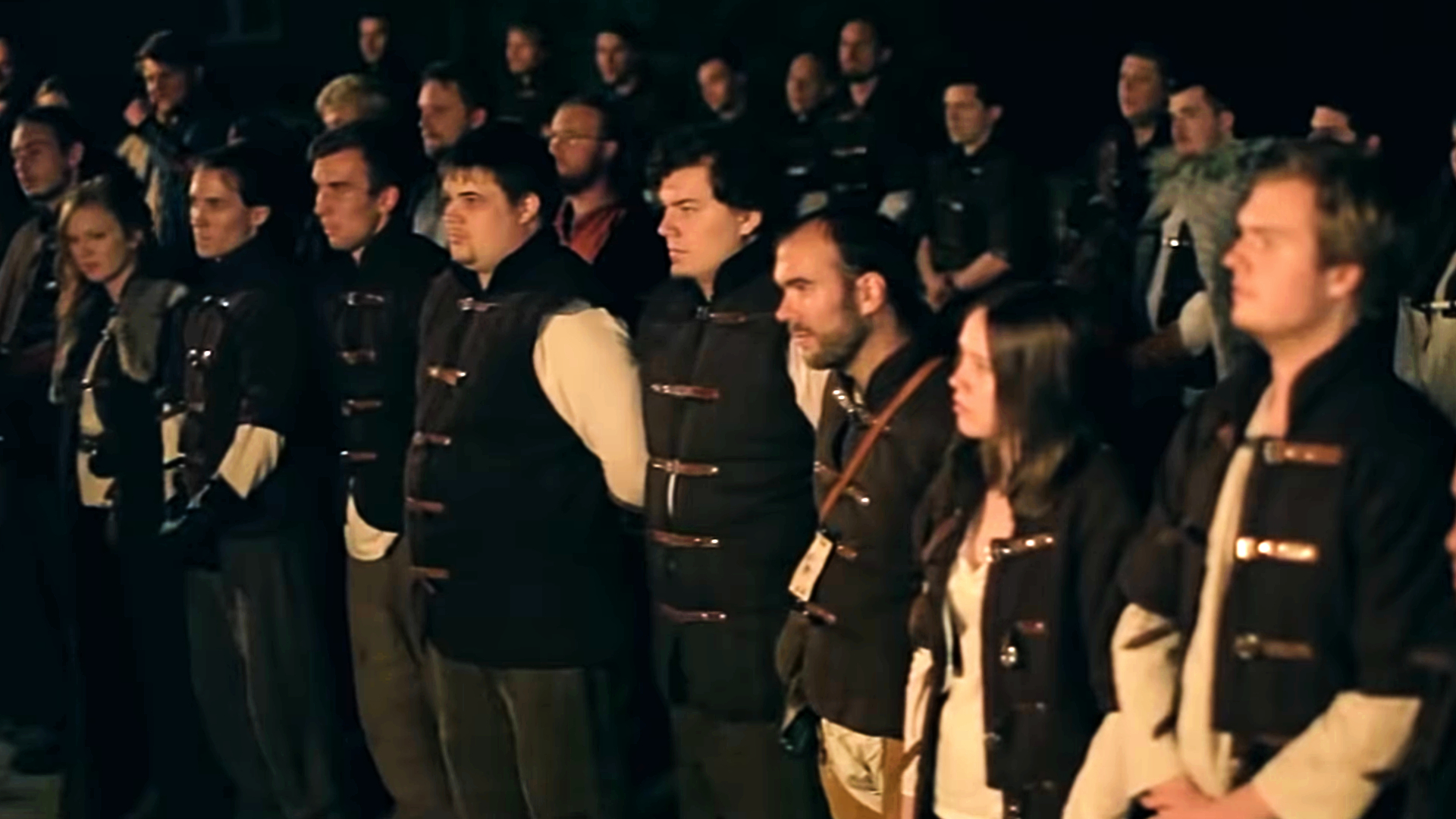
What happened:
- A real-life Witcher school in Poland that had been operating since 2015 closed its doors.
- The founders claimed they were shut down because of their association with a right-wing political group.
What were the consequences:
The idea of a real-life Witcher school (where students aren't forced to undergo the Trial of the Grasses) sounds pretty cool, but sadly the one known as 5 Żywiołów was definitely not. After taking roughly 3,000 participants through more than 40 events since its launch in 2015, co-founders Dominik and Dastin Wawrzyniak announced that CD Projekt had pulled their Witchering license because of Dastin's wife's ties to Ordo Iuris, a right-wing Catholic organization that campaigns against abortion, divorce, and the existence of LGBTQ+ people.
CD Projekt did not confirm the Wawrzyniak's claim, saying only that the end of the deal with 5 Żywiołów "was about the LARP itself, and potential merchandise tied to it." 5 Żywiołów is still in operation, offering special events, LARPs, and prop sales—just no witcher training.
Ready or Not removed from Steam
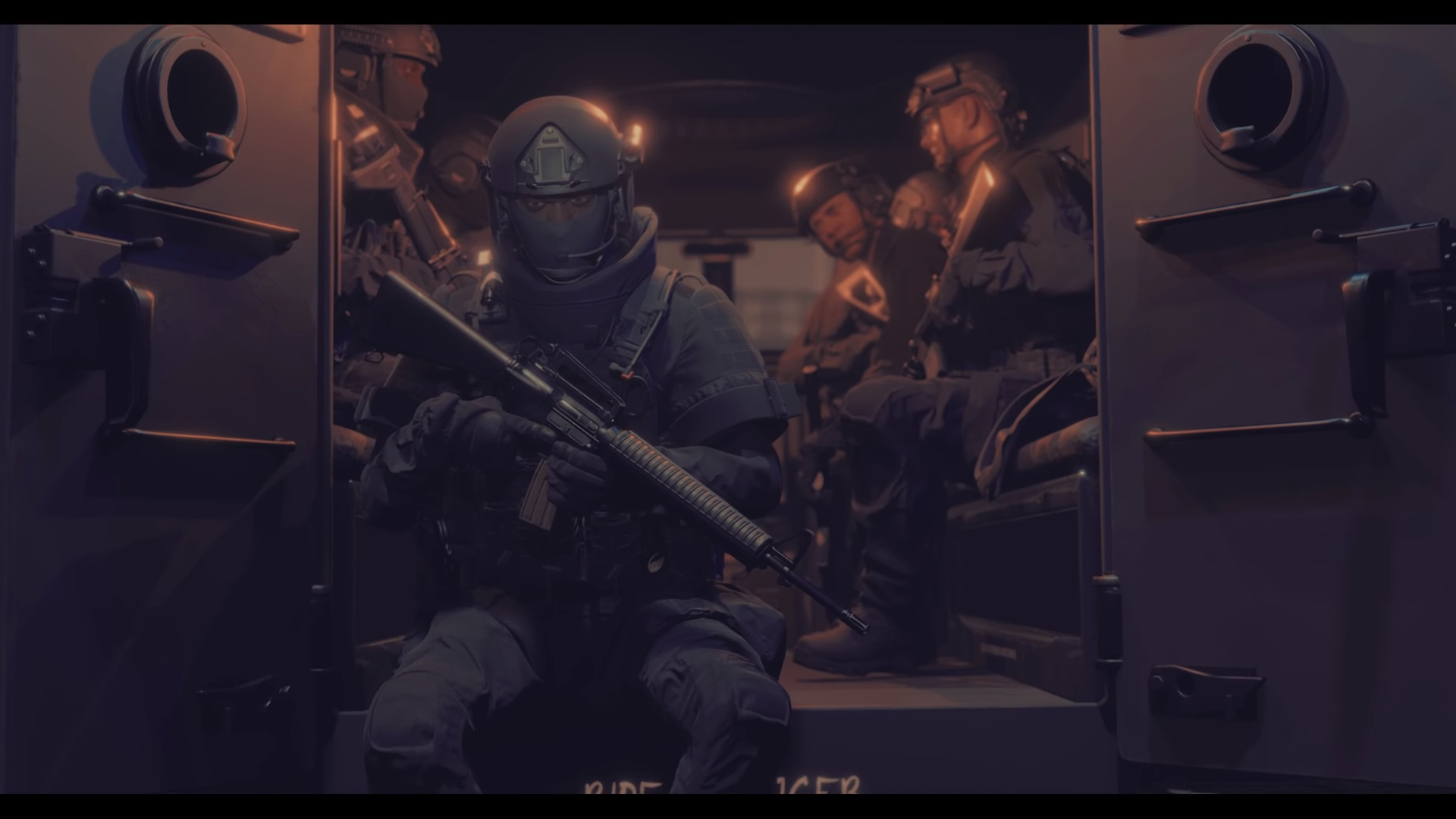
What happened:
- Tactical shooter Ready or Not disappeared from Steam in June, not long after a June 12 update added a level based on the aftermath of a nightclub shooting.
What were the consequences:
June 12, when the "Pryzm" nightclub map was added to Ready or Not, is the anniversary of the 2016 Pulse Nightclub shooting in Florida in which 49 people were killed and 53 wounded. This wasn't the first time Void Interactive had courted this kind of controversy: In 2017, it split with then-publisher Team17 after vowing to add a "school shooting mission," although the studio denied that was the reason for the split.
The immediate assumption after the game was removed was that developer Void Interactive had finally gone too far. The studio denied that when Ready or Not was returned to Steam a couple days later, however. Instead, it said that the game was taken down because of a copyright claim against certain material in the Pryzm level, which the studio removed.
Ready or Not remains available on Steam, where despite the controversy it's been very well received, and maintains a substantial player base. The planned school shooting level has not yet been added.
Twitch streamer seriously injured at TwitchCon
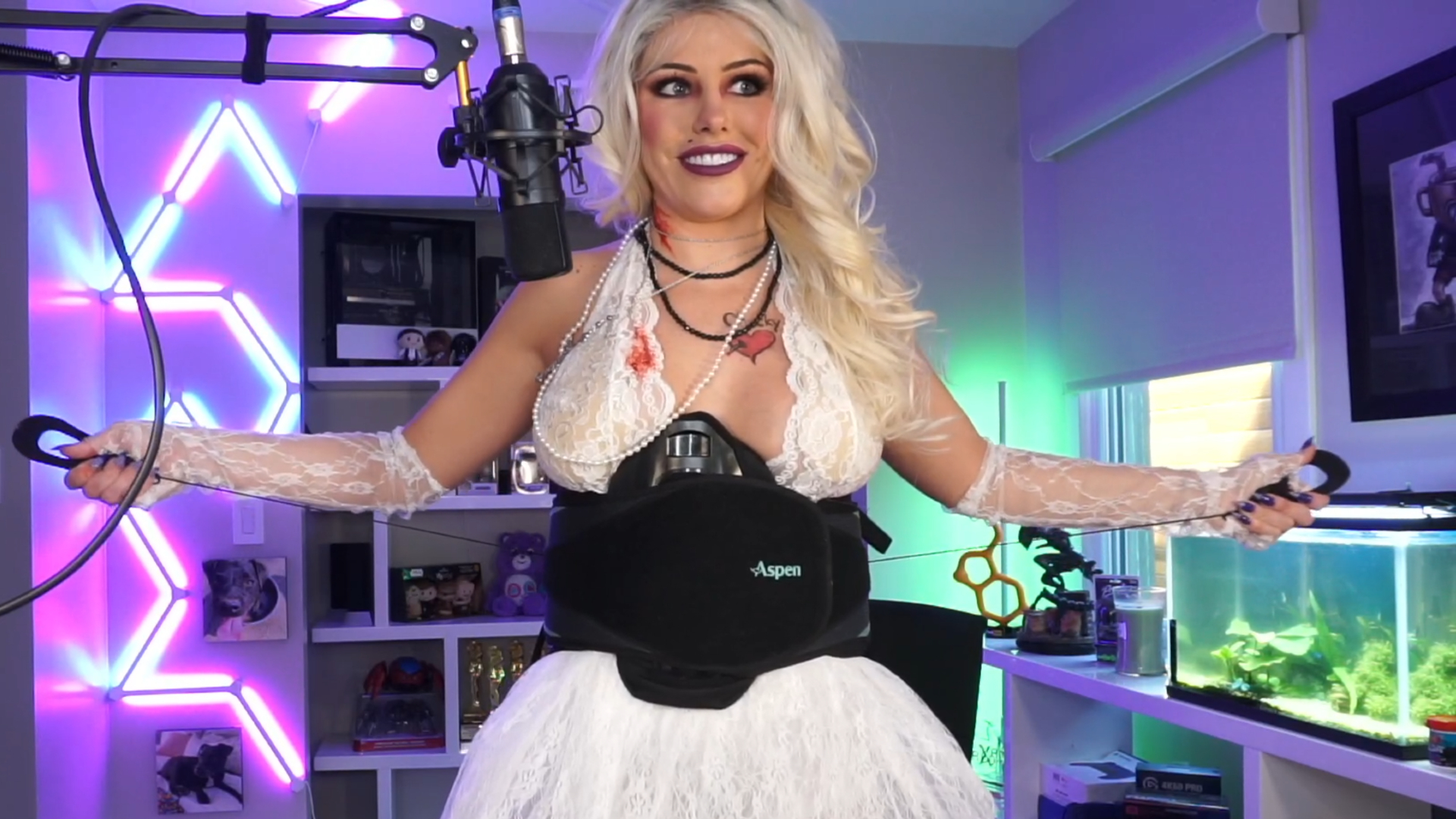
What happened:
- Streamer Adriana Chechik broke her back after jumping into a foam pit at TwitchCon.
- Other streamers were injured at the same event.
What were the consequences:
Chechik, who has 824,000 followers on Twitch, broke her back in two places during a "Face Off" event in which streamers used padded foam sticks to knock each other off of raised platforms. Unfortunately, the padded pit in which she fell was apparently little more than a thin layer of foam cubes spread across a concrete floor. Multiple others were injured in various ways for the same reason: Streamer LochVaness, for instance, dislocated her knee and sprained her ankle after stepping off her podium during the event.
Predictably, it didn't take long for some followers to try to "turn [Chechik] into the bad guy," as she put it a couple weeks later, for jumping into the pit in the first place. Chechik pushed back, saying she was among others at the event "who assumed it was met with proper safety precautions."
"It's like getting into a car assuming the air bag will work and it doesn't," she said. "I'm not at fault. None of the victims injured are."
Chechik also shared examples of the gruelling physical therapy she was undergoing, and said her first attempt at walking after the injury was so exhausting that she slept for the most of the rest of the day. She's undergone several surgeries, which revealed that the damage she suffered was even more extensive than originally thought, and made her first post-injury appearance on stream on October 31. There was no mention of lawsuits against either Twitch or Lenovo, which was the company actually operating the foam pit at the event, but I'll be extremely surprised if there's no settlement reached between the parties.
NFT bro torches valuable painting

What happened:
- Over-monied idiot celebrates the launch of his blockchain by burning a $10 million piece of actual art.
What were the consequences:
Frida.NFT founder Martin Mobarak's theatrical burning of a 1944 Frida Kahlo sketch called Fantasmones Siniestros, which was valued at $10 million, was widely (and properly) condemned. There was also question as to whether Mobarak had actually burned a real Kahlo at all, however, or if he'd lit up a forgery just to impress his friends and potential backers.
The good news is, he stands to lose either way: Lawyer Leila Amineddoleh told the New York Times (via Smithsonian Magazine) that if the painting was genuine, destroying it was a violation of Mexican law (Mobarak is Mexican, although he lives in Miami), and if it was a reproduction, it might be a violation of copyright law or even fraud.
Domina delisted from Steam
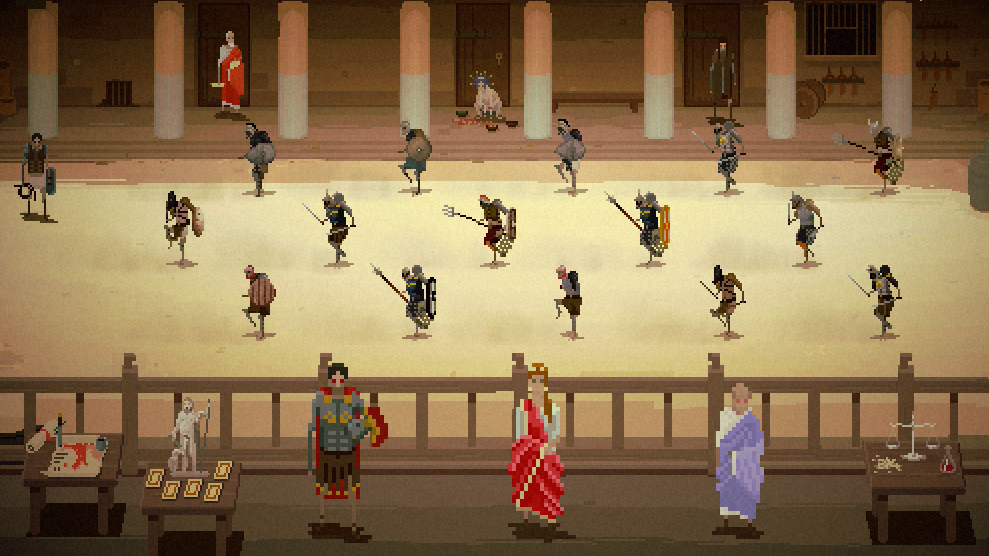
What happened:
- Domina, a gladiator fighting game, was removed from Steam by Valve following a transphobic rant posted by its developer.
- The developer had previously been suspended from Steam forums for posting similar messages.
What were the consequences:
Shortly after posting an update entitled "We're Out of Ideas, Mentally Unstable, Totally Degenerate, & Desperate for Clout," Domina was removed from Steam. The update, which was essentially an extended joke about deadnaming trans people, was apparently the final straw for Valve, which had previously suspended the developer from Domina's forums on Steam over similar posts.
The developer denounced the delisting on the far-right social media network Gab, in a message which of course carried a homophobic slur. He followed that up with other messages attacking Valve and non-binary streamer James Stephanie Sterling.
Domina was pretty well regarded before the developer began posting hateful messages, and from that perspective its loss is unfortunate. On the other hand, the developer had gone way over the line, multiple times, and even though it may have taken longer than ideal, I was glad to see Valve drop the hammer on the guy. He remains banished from Steam to this day.
Final Fantasy 16 director rejects diversity

What happened:
- Producer Naoki Yoshida said Final Fantasy 16 won't have many characters who are Black or people of color because it's inspired by medieval Europe, where Black people did not exist.
- This is ahistorical nonsense.
What were the consequences:
"Realism" is a weak justification, but a popular one: Games including The Witcher, Kingdom Come: Deliverance, and Mordhau have all used it to justify racially homogeneous (that is, white) casts. But it doesn't hold up, and not just because it's inaccurate: The simple fact is that once you have dragons flying around in the sky, you can do whatever the hell you want with "reality," including putting together a diverse cast.
There were no real "consequences" in any meaningful sense. Some Final Fantasy fans acknowledged the excuse as lazy and inaccurate, but plenty of others spoke out to defend Yoshida on Reddit and elsewhere, and Square Enix has shown no inclination to change direction.
Final Fantasy 16 itself remains hotly anticipated: It's set to launch for the PlayStation 5 on June 22, 2023, with a six-month exclusivity window; the PC version could arrive as soon as December 31, 2023, but an official release date announcement hasn't yet been made.

Andy has been gaming on PCs from the very beginning, starting as a youngster with text adventures and primitive action games on a cassette-based TRS80. From there he graduated to the glory days of Sierra Online adventures and Microprose sims, ran a local BBS, learned how to build PCs, and developed a longstanding love of RPGs, immersive sims, and shooters. He began writing videogame news in 2007 for The Escapist and somehow managed to avoid getting fired until 2014, when he joined the storied ranks of PC Gamer. He covers all aspects of the industry, from new game announcements and patch notes to legal disputes, Twitch beefs, esports, and Henry Cavill. Lots of Henry Cavill.



